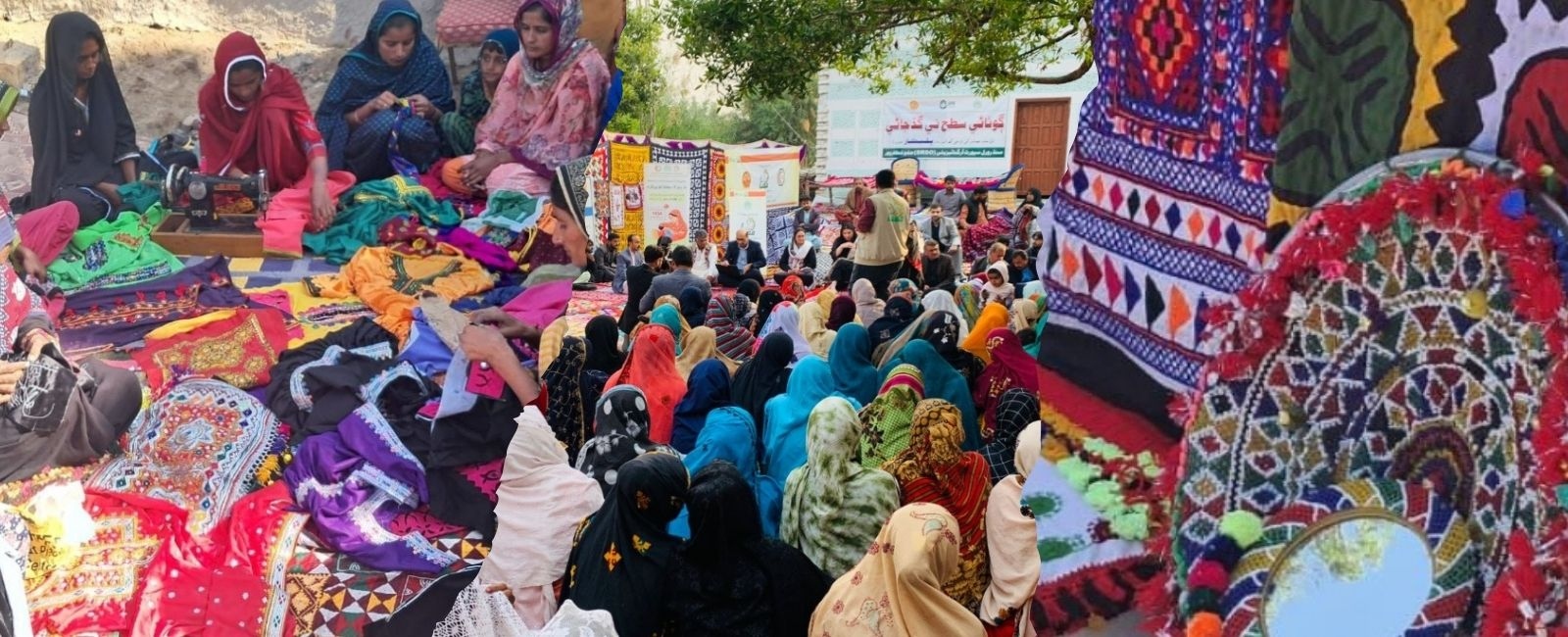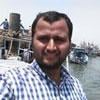How an India-inspired model empowering Sindh women socially and economically
The three-tiered social mobilisation approach is inspired by a successful model implemented in India's Andhra Pradesh

Nine years ago, Aami's world turned upside down. Her husband Sheru, the man she once trusted with her life, attacked her with an axe, leaving her with 32 stitches and confined to a wheelchair. He landed himself behind bars for his crime, while Aami was left to pick up the pieces — not just for herself, but also for their six children, including five daughters.
In Majno Shoro village of Thatta district, she lives in a thatched house — a humble abode she built with the income earned from selling handicrafts.
"I know all handicrafts," Aami told Geo.tv, as she showed embroidered pillow covers and traditional Balochi gaj, a dress-front embroidery.
"I am the sole breadwinner. My three daughters and I work together. We manage to earn Rs1,500 some days, while on others it goes up to Rs2,000 or Rs2,500," she shares. Aami’s two other daughters and son go to school.
Aami can neither stand nor walk and for the last nine years, she has been confined to a wheelchair, she said with a heavy voice.
"My husband had a mental health issue. He hit me with an axe on the right side of my shoulder. I can return to a normal life with surgery to insert a rod, but that requires money,” she said describing her situation, further sharing that she can barely make ends meet to support her family.
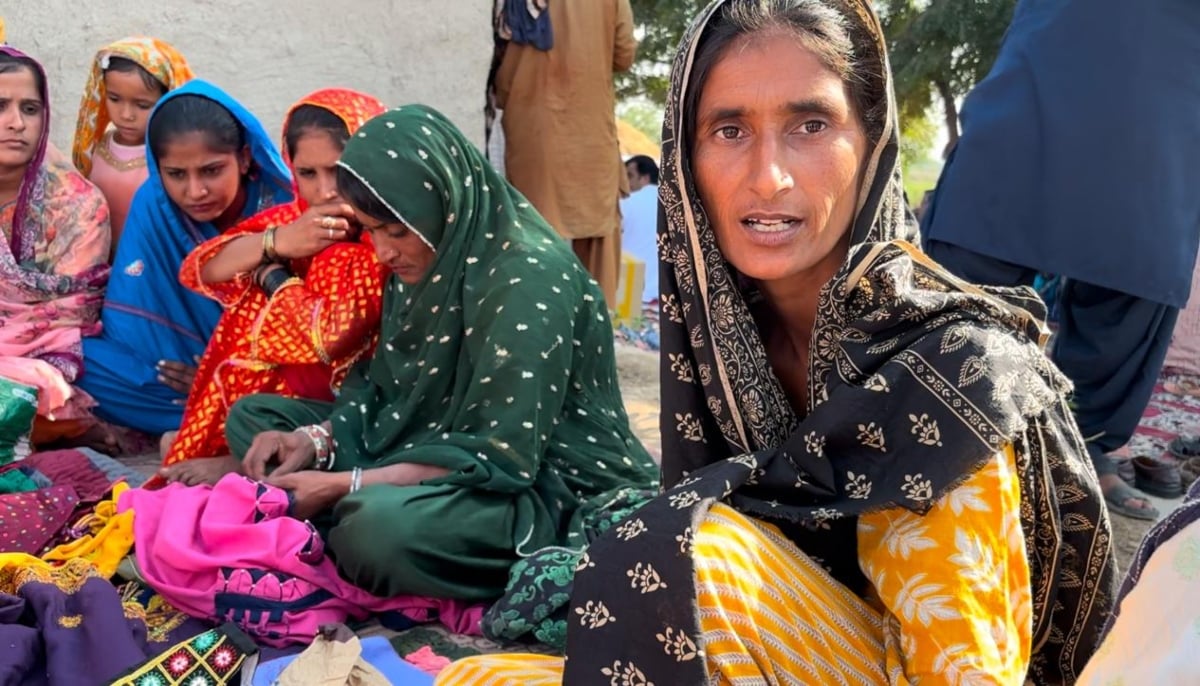
Aami was initially given a one-time cash grant of Rs15,000 by the Sindh Rural Support Organisation (SRSO), a non-profit organisation, for purchasing income-generating assets. She bought fabric and made a suit, which she sold with a profit. Later, she made two more suits and then three more. She also bought a buffalo calf with the income she earned.
Aami then became a member of a Community Organisation (CO) to be eligible for the grant.
SRSO, which helped Aami kick-start her business, is executing the Peoples Poverty Reduction Programme (PPRP) through a three-tier social mobilisation approach. Through this programme, the women are first encouraged to form a CO which comprises 15 to 20 households. They hold regular meetings to discuss issues concerning their community and are trained in organising meetings, record-keeping, and savings practices.
Two representatives from each CO then come together to form a Village Organisation (VO) at the village level, comprising all COs. VOs further federate into a Local Support Organisation (LSO) at the union council level having two representatives from each VO.
Shabana Alam, a resident of Achaar Khaskheli village, said that with the formation of these organisations, there has been increasing awareness among women. "They now pay attention to cleanliness, focus on children's education, and overall, they have improved their lifestyle," she shared with Geo.tv.
"My main focus has been on preventing underage marriages. Young girls were being married off and bore children when they didn't have the capacity to do so. Their lives were destroyed before they could even begin," she explained, adding, "I have saved the lives of 20-25 young girls."
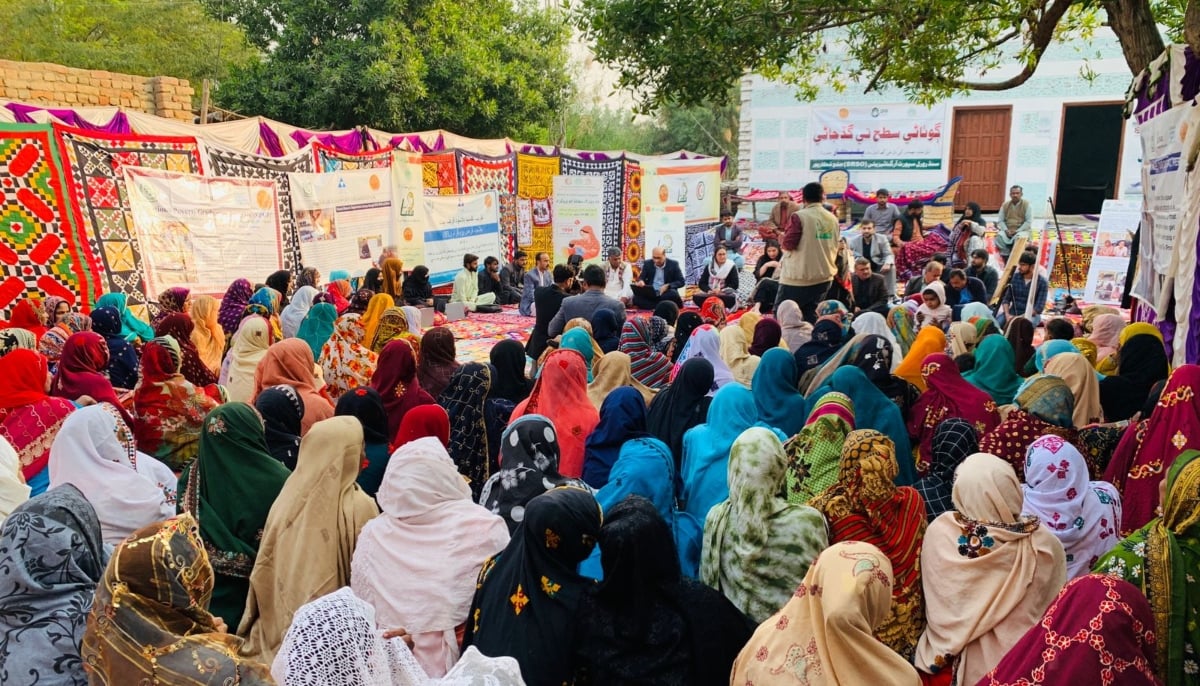
Zakia Khanum, a resident of Mohammad Saleh village and manager of the LSO named 'Roshni', told Geo.tv they face a multitude of challenges as their land lies close to the coast and the water is saline. "But our women did not lose hope. They showed courage, formed their organisations and have been running them very efficiently."
"When the women started earning a little through small businesses, they began sending their young girls, who earlier worked in the fields, and their children, who were engaged in labour, to school," she says.
Through these organisations, women have been addressing various issues that impact their lives.
"Men also participate in the meetings of LSOs, VOs, and COs," Falaknaz Shoro, an LSO president said. "We convinced both women and men to send their daughters to school because education is just as much a right for girls as it is for boys.
"We also planted trees in our village. These trees protect us from disasters and serve as a place to tether our livestock. Even our meetings take place beneath their shade."
Previously, Shoro explained, women wouldn’t go to hospitals for delivery. "Our organisations decided that expecting mothers must visit the hospital every month for a check-up and to get vaccinated. They must deliver at the hospital to minimise risks for both mother and baby."
Through their initiatives at the organisations, the women have also bought a rickshaw to transport girls to school. “We took a loan from SRSO to make this happen. Not only did this provide a livelihood opportunity for the driver, but now the girls reach school and return home on time.”
'We work with women'
SRSO CEO Muhammad Dittal Kalhoro explained that on average, there are 3,000 households in a union council. The organisation begins by profiling households through surveys to gather information about the number of houses, population, including men and women, levels of education, and livestock and then uses a poverty scorecard to determine the poverty levels of these households.
"We work with women who are willing to step out of their homes and organise themselves into community institutions," he said.
He added that the organisation has been working with women in Thatta for the past five years. “As they participate in meetings, they always learn something. More than anything else, women are being socially empowered."
These women can now raise their voices for their rights and talk about their daughters' education, said Kalhoro.
The SRSO CEO also highlighted that trust is also building among men when they see women contributing to household income. “When women start earning even a little, they not only take care of the home but also stand beside their husbands, sharing the burden."
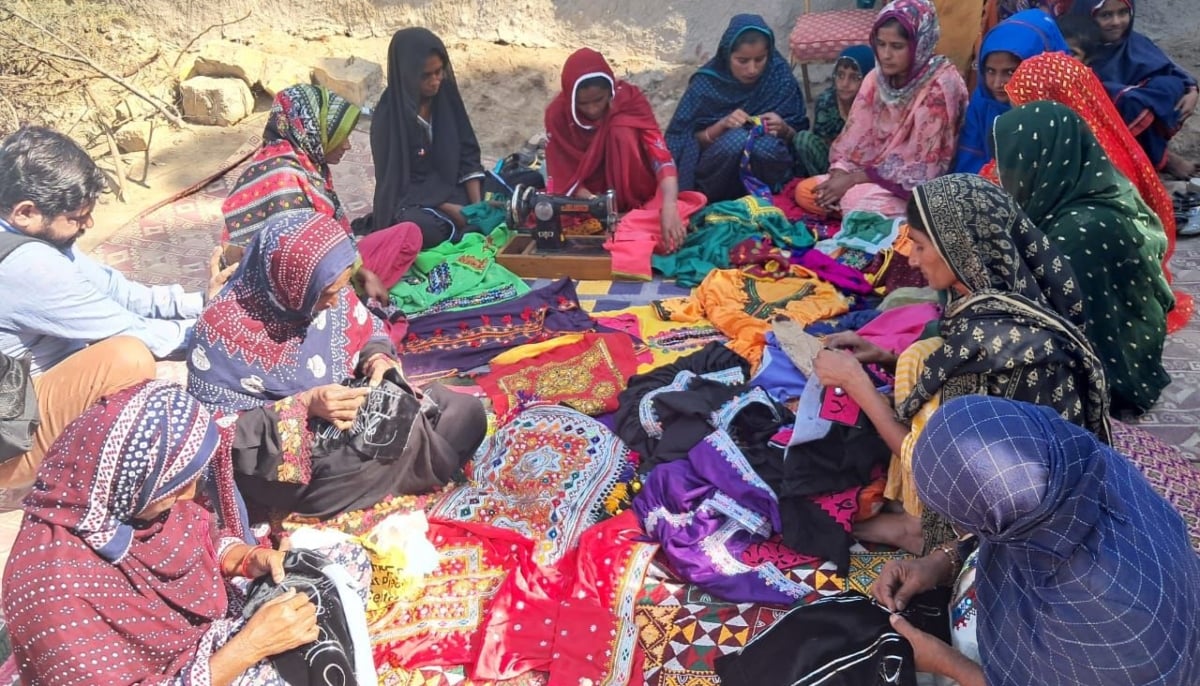
He maintained that although the organisation's goal was to alleviate household poverty, its social mobilisation approach is chipping away at deep-seated issues like child marriage and honour killing. Through awareness and education, there has been a gradual change in people's attitude, perhaps not everywhere but in many places, he added.
Kalhoro was of the view that poverty, drug abuse, and financial issues are often at the root of honour-killing cases. "Sometimes, it's as simple as borrowing money from someone, and then false allegations are made to settle scores," he explained. Economic empowerment, he added, can help prevent such incidents.
'True value'
Sarah, the manager of a village organisation named ‘Chand’, shares that women had long been skilled at stitching and embroidery, but their work was undervalued. "We realised the true worth of our skills after working with SRSO. Now we know that our work can even be sold in international markets."
Sarah explained that they now receive orders worth Rs50,000 to Rs100,000. "We work together in groups to complete these orders, and the payments are transferred to my account. I then distribute the earnings among the women involved," she added.
SRSO now has presence in 15 districts of Sindh, where it has organised around 1.5 million households. This month, a memorandum of understanding (MoU) was signed between the NGO and the Sindh government to expand the provincial government and European Union-funded PPRP to five more districts — Shaheed Benazirabad, Naushahro Feroz, Hyderabad and two districts of Karachi, Malir and Keamari.
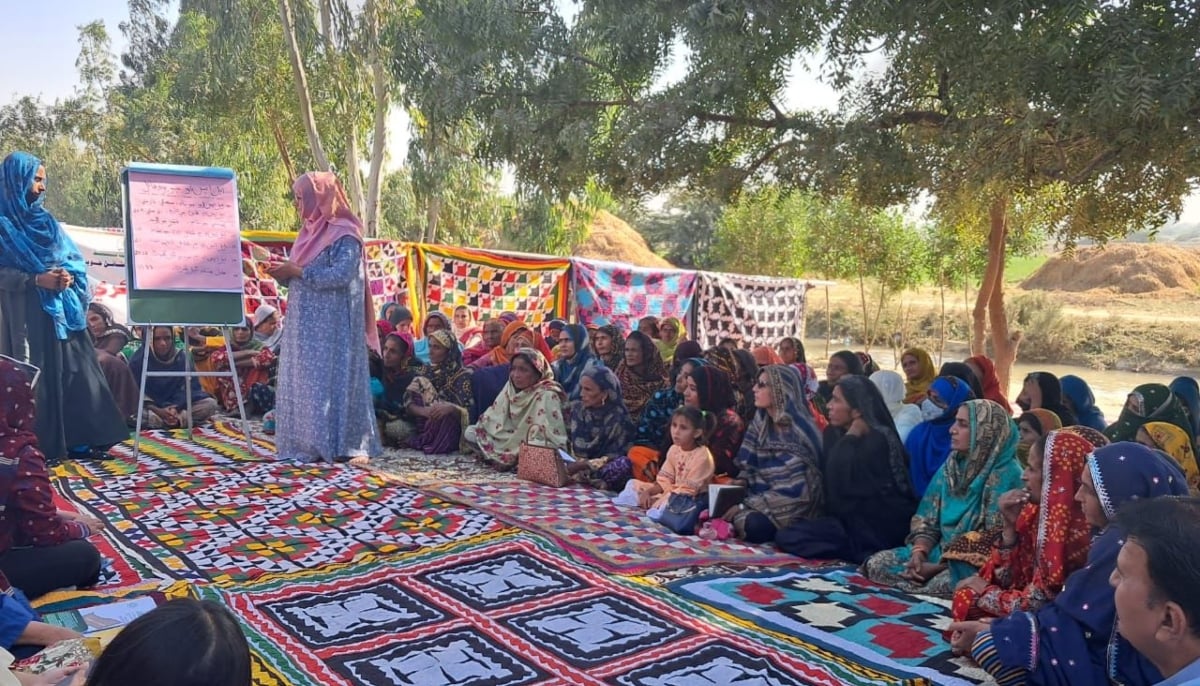
As of June 2024, 79,432 COs, 13,944 VOs and 592 LSOs have been formed, according to data. More than 57,646 households have been given Income Generating Grants (IGG) worth Rs798.66 million, 281,479 households have benefited from the Community Investment Fund (CIF) and 110,888 community members have been trained in technical and vocational training.
Around 958,598 trees have been planted and managed by communities and 18,878 kitchen gardening seeds have been distributed. It has organised 6,005 rural women artisans in 308 business development groups and 12,690 children enrolled in SRSO-managed community schools.
This three-tiered social mobilisation approach of the PPRP is inspired by a successful model implemented in India's Andhra Pradesh. This model underlines a three-tiered social mobilisation approach: community organisations mobilise households and address local issues; village organisations coordinate activities of multiple COs; and local support organisations provide technical assistance, training, and support to COs and VOs.
'No poverty reduction'
Renowned economist Dr Kaiser Bengali opines that although the SRSO programme is billed as a poverty reduction initiative, it was a social mobilisation programme in reality. "Data shows that many rural support programmes have been launched at the national level and by the provinces, but they have failed to alleviate poverty," he told Geo.tv.
"They often share stories about giving money to a woman to open a shop and claiming it helped her send her children to school. However, when we traced these stories, we found that most of these shops shut down within three to six months. This indicates there has been no real impact on poverty reduction."
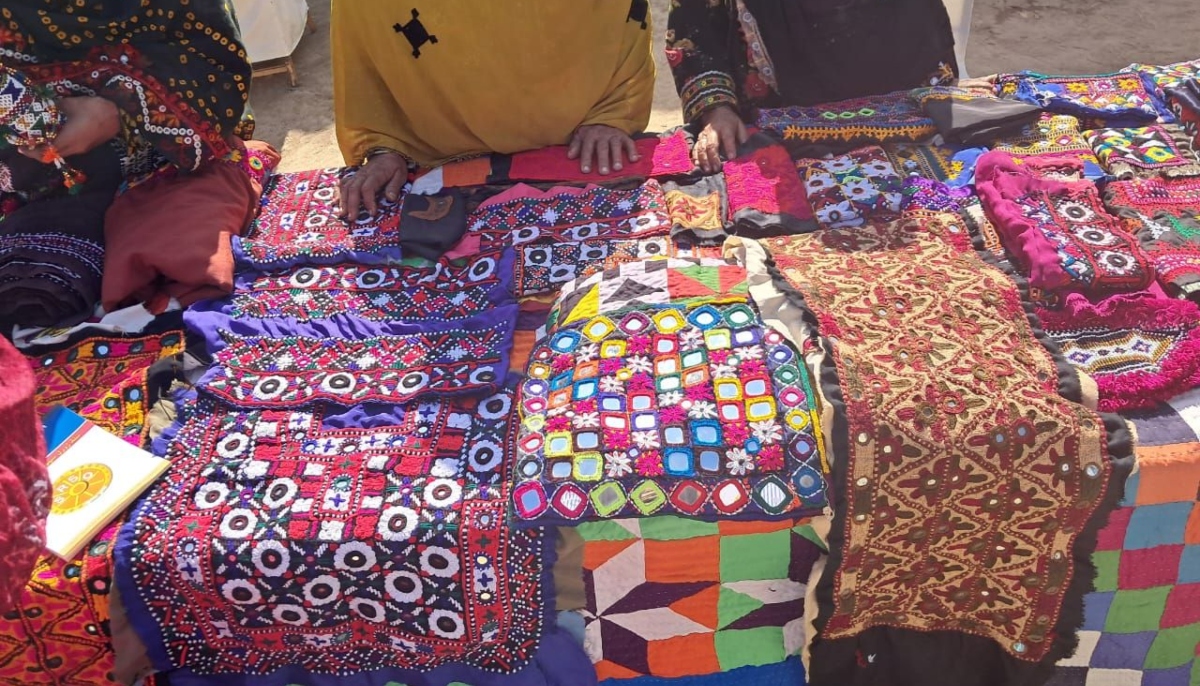
Dr Kaiser, however, acknowledged that these programmes have successfully mobilised women, providing them with opportunities to step out of their homes and engage in discussions with other women, which is their achievement.
Teach how to catch a fish
The Benazir Income Support Programme (BISP) has sometimes faced criticism for relying on a stipend-based model rather than focusing on empowering women with skills to become self-reliant.
"BISP is called an income support programme and was not launched to alleviate poverty," explained Dr Kaiser.
"When I was heading BISP, I would say it was not a poverty reduction programme. We started with a Rs1,000 stipend, and that amount is not sufficient to alleviate poverty. However, for households with low incomes, it could increase their earnings and improve their purchasing power. When we launched the programme in 2008, we calculated that Rs1,000 could enable a household of six to buy 22 days’ worth of flour."
Billions of rupees, the economist said, have been spent on income generation, skill development, and business loan programmes, yet there have been no significant results. Neither have individuals succeeded in establishing sustainable businesses nor have they secured jobs after acquiring skills, he added.
Dr Kaiser said poverty can only be reduced through jobs, which can be created when the economy is growing rapidly, industries are flourishing, and agricultural production is increasing.
Yousuf Katpar is a reporter at The News.
Header and thumbnail illustration by Geo.tv



